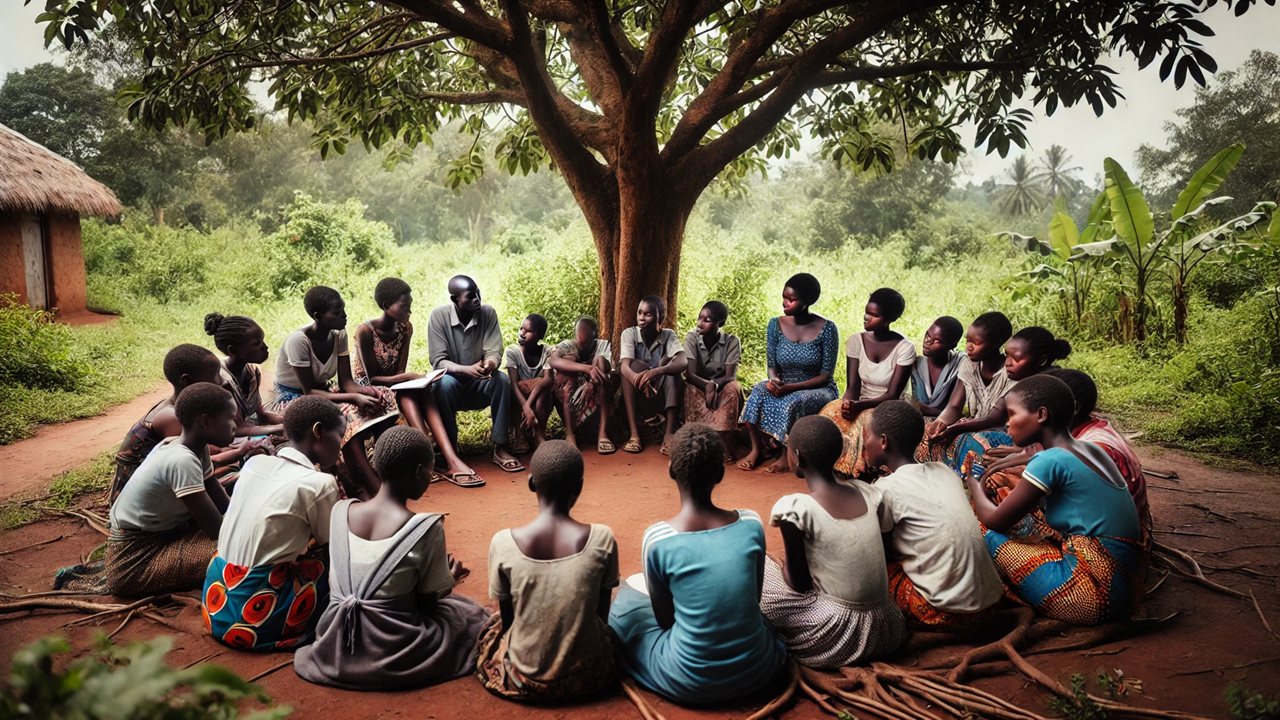Breaking the Cycle: The Struggles and Successes of Mental Health Therapy for Ugandan Teens
A recent study titled "Therapy, Mental Health, and Human Capital Accumulation among Adolescents in Uganda" by a team of researchers, including Sarah Baird and Berk Ozler, reveals the potential and limitations of group-based interpersonal therapy for adolescent girls in Uganda. While the therapy initially improved mental health, its effects faded over time, and the addition of cash transfers during the COVID-19 pandemic had unexpected negative consequences. The findings underscore the challenges of implementing mental health interventions in low-resource settings and call for more sustainable approaches.

Mental Health Interventions: A Double-Edged Sword
In a world where mental health challenges are increasingly recognized, the question of how to best support vulnerable populations in low-income countries remains critical. A recent study conducted in Uganda, titled "Therapy, Mental Health, and Human Capital Accumulation among Adolescents in Uganda," sheds light on this pressing issue. The research, led by Sarah Baird, Berk Ozler, and their colleagues, sought to determine whether a simple yet structured approach—group-based interpersonal therapy—could improve the mental well-being and prospects of adolescent girls at risk of depression.
The study, which included over a hundred adolescent clubs across Uganda, divided participants into three groups. One received the interpersonal therapy, another received the therapy followed by a one-time cash transfer, and the last group served as the control, receiving neither intervention. The goal was to see if these low-cost, scalable interventions could provide lasting benefits in both mental health and human capital.
Initial Successes and Long-Term Disappointments
At first glance, the results seemed promising. The therapy managed to lift the spirits of many participants, increasing the proportion of girls experiencing minimal depression by 20-30% within a year after the intervention. These improvements were not just about feeling better; they also hinted at potential long-term gains, such as higher school enrollment and delayed marriage—key indicators of human capital development.
But as time passed, the initial optimism began to fade. By the two-year follow-up, the positive effects of the therapy had all but disappeared. The study found no significant lasting improvements in mental health or human capital accumulation. This outcome raises critical questions about the sustainability of such interventions, especially in challenging environments like Uganda, where resources are limited, and external shocks, such as the COVID-19 pandemic, can exacerbate vulnerabilities.
The Unintended Consequences of Cash Transfers
Perhaps the most surprising finding of the study was the impact of the cash transfers given to some participants after completing therapy. While cash transfers are often seen as a straightforward way to support low-income families, in this case, they had the opposite of the intended effect. The girls who received the cash were 10% less likely to experience minimal depression compared to those who only received the therapy. This negative impact persisted even two years later.
The researchers suggest that the timing of the cash transfers, coinciding with the onset of the COVID-19 pandemic, played a significant role in this unexpected outcome. Many girls found themselves under pressure to use the money to support their families during the crisis, rather than investing in their futures. This diversion of funds led to frustration and stress, undermining the mental health benefits of the therapy they had received.
Lessons Learned and the Road Ahead
The findings of this study offer valuable lessons for policymakers, development practitioners, and mental health professionals. While group-based therapy can offer short-term relief, its long-term effectiveness remains uncertain, particularly in low-resource settings where external factors can quickly undo progress. The addition of cash transfers, while well-intentioned, may require more careful consideration, particularly in terms of timing and the broader economic context.
As the global community continues to grapple with the mental health crisis, especially among young people, the Ugandan experience serves as a reminder of the complexity of these issues. Interventions must be designed not only to address immediate needs but also to withstand the test of time and unforeseen challenges.
The study calls for further research to develop more robust, scalable solutions that can deliver sustained mental health benefits and support human capital development in vulnerable populations. As we move forward, the lessons learned from Uganda will be crucial in shaping the future of mental health interventions in low-income countries.
- FIRST PUBLISHED IN:
- Devdiscourse
ALSO READ
Haridwar Outrage: Mental Health and Vigilante Injustice
Uganda Cancer Institute Delivers First VMAT Treatment for Child Tumour with IAEA Aid
Uganda's Strategic Debt Trim: Balancing Growth and Fiscal Responsibility
Uganda's Export Boom: Coffee, Cocoa, and Gold Drive Near Doubling of Earnings
Uganda's Bold Oil Bet: $2 Billion Loan Boosts National Infrastructure Dreams










